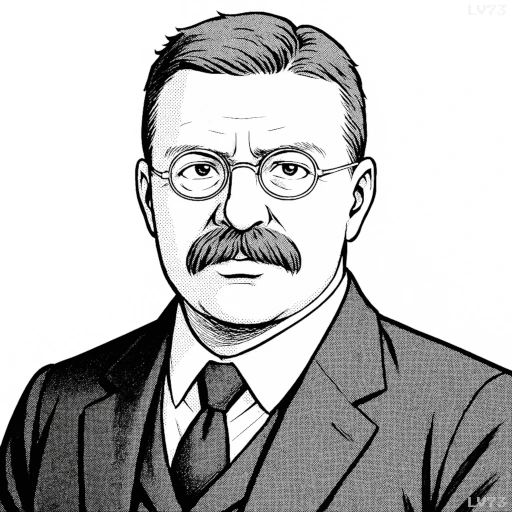“I don’t pity any man who does hard work worth doing. I admire him. I pity the creature who does not work, at whichever end of the social scale he may regard himself as being.”

- October 27, 1858 – January 6, 1919
- American
- Politician, military officer
table of contents
Quote
“I don’t pity any man who does hard work worth doing. I admire him. I pity the creature who does not work, at whichever end of the social scale he may regard himself as being.”
Explanation
In this quote, Roosevelt stresses the dignity and honor of hard work, regardless of the social status of the person doing it. He rejects the idea that hard work is something to be pitied, suggesting instead that it is to be admired and respected. For Roosevelt, the value of work lies not in the ease or prestige of the task, but in the effort and commitment required to accomplish it. He expresses greater pity for those who refuse to work, regardless of their wealth or social position, as they are missing out on the purpose, satisfaction, and contribution that meaningful work brings to life. Roosevelt viewed work as essential to individual fulfillment and societal progress, and he believed that it was the responsibility of all citizens to contribute through labor, whether in the fields, factories, or offices.
Roosevelt’s own life was a testament to his belief in the value of hard work. From his early days as a sickly child determined to overcome physical limitations, to his later leadership as president, Roosevelt placed great emphasis on personal effort and self-reliance. He saw work not as a burden but as a way to build character, contribute to society, and achieve lasting results.
This quote resonates today in discussions about work ethic, social responsibility, and the value of productive engagement in society. It serves as a reminder that fulfillment and contribution come from active participation, whether in one’s career, community, or family life. Roosevelt’s words encourage us to find pride and purpose in doing meaningful work, no matter our position in society, and to understand that it is through labor and effort that we build not just personal satisfaction, but also a stronger, more connected society.
Would you like to share your impressions or related stories about this quote in the comments section?




